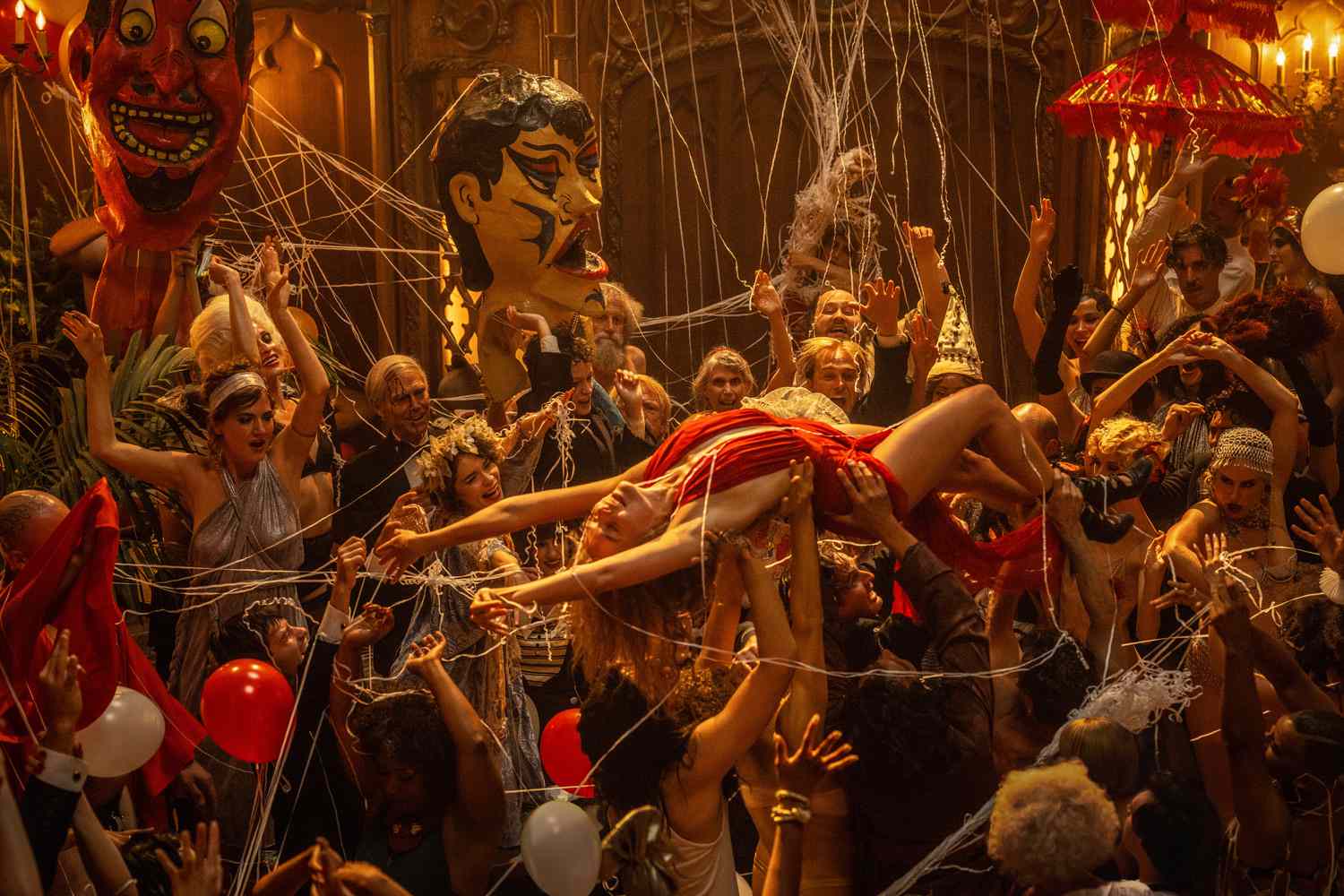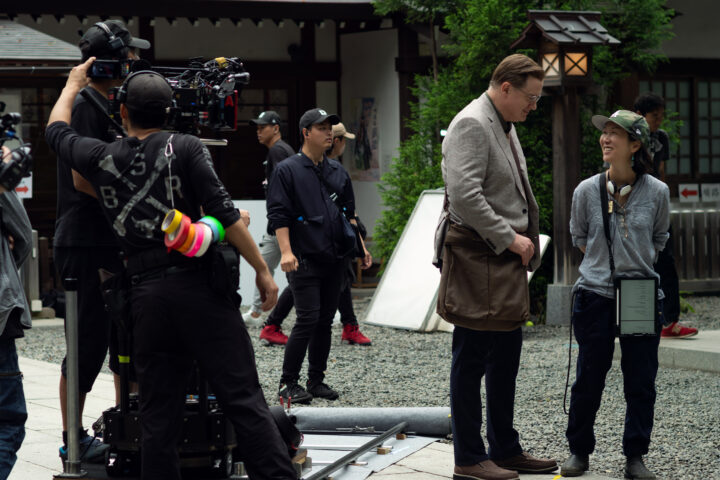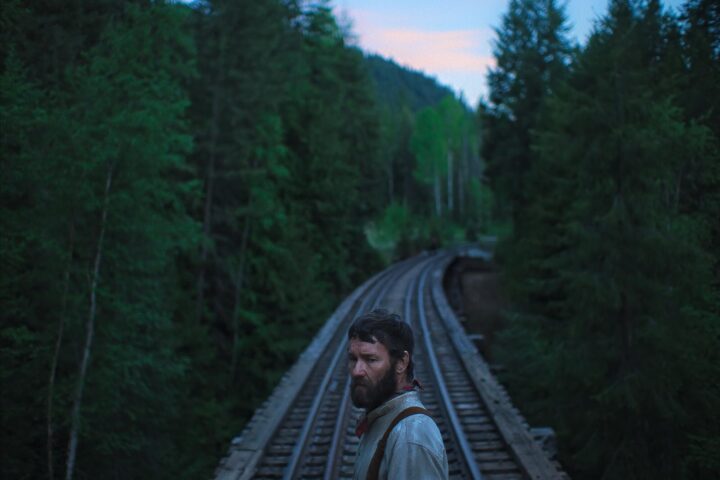More is much more in Babylon, Damien Chazelle’s mammoth period ode to a Hollywood in transition circa 1927 and plunge into gleeful debauchery, mad invention and wild excess. In a movie bound to divide audiences, adventurous cineastes will love Chazelle’s go-for-broke, enfant terrible provocation of a Tinseltown in transition between the death of the silents and birth of the talkies.
Want to see an elephant defecate on someone in close-up? Check. A snake sink its fangs into the jugular of B-movie actress? Done. A Fatty Arbuckle surrogate urinate on a naked companion who expires, we presume, of death by sex? Chazelle has got you covered. Certainly many surface-level viewers will dismiss the film based merely on such gleefully outré simulations (oh the horror!) of sex, drugs, bodily fluids and even a bit of barbarism. And that’s just in the opening sequence.
But as Roger Ebert often said, artistry can redeem any subject matter, leaving the rest of us free to revel in Chazelle’s inventive three-hour tale of seekers and strivers storming an industry determined to eat them whole and vomit them out. At times, Babylon plays like a loving homage to John Schlesinger’s Day of the Locust (1975) rendered through the maniacal lens of an in-his-prime Ken Russell.
Chazelle, who helmed Whiplash, won a directing Oscar for La La Land and followed with the non-starter First Man, here works with his largest to-date production budget (an estimated $80 million), putting every dollar onscreen in one of the year’s true movie-movie rides. Babylon is writ large commercial filmmaking made by and for adults, the kind of large studio production rarely made anymore and one that takes big risks and, mostly, pays big rewards. In a film all about an industry in the throes of change, Chazelle superbly realizes a massive production, filmmaking ingenuity undeniable in one imaginative set-piece after another.
Working on a macroscale and clocking in at 189 minutes with a screenplay by its director, Chazelle’s Golden Age of Hollywood canvas swaps the dream seekers of La La Land for their less poetic, distant cousins of a bygone era, here a handful of romantics circling the sordid milieu in search of fame and ever elusive longevity.
In the film’s rousing opening salvo, a festival of unbridled decadence scored to the thumping jazz arrangements of Oscar-winning composer Justin Hurwitz, we meet hellcat aspiring actress Nellie LaRoy (Margot Robbie), a struggling unknown who crashes an epic bacchanalian bash where she meets Mexican immigrant and hired hand Manny (Diego Calva), who through turnabout finds himself the personal assistant to Hollywood’s biggest star, Jack Conrad (Brad Pitt), a Fairbanks-esque leading man unaware that his days at the top are numbered.
Also on hand is band trumpeter Sidney Palmer (Jovan Adepo), looking for a break into pictures only to face racist industry conventions, and columnist Elinor St. John (a smart Jean Smart), doing Hedda Hopper duty as moviedom’s know all, see all gossip maven. And then there is the glamourous lesbian songstress Lady Fay Shu (Li Jun Li), a sort of Anna May Wong, Hollywood’s Asian-American acting forerunner.
Fortunes turn for starlet Nellie, who gets a big break as a replacement player in a saloon set western, promptly knocking everyone out with an unexpected onscreen dexterity. The personification of talent and beauty, Nellie skyrockets as the next big thing, but will her hardscrabble background and vulgar, often uncouth manner, including hiring her two-bit huckster dad (Eric Roberts) as her manager, doom her overnight success?
Not content at the bottom, Manny is far too entrepreneurial to get stuck catering to a movie star’s whims long term, and eventually finds his way into a studio executive role. One of the film’s most clever dimensions is its narrative structure and relationships–when Nellie is up, Manny is down, and the reverse proves true as well. Robbie and Calva work well together, and are convincing as unlikely and loyal friends swimming with sharks while trying to stay afloat.
Meanwhile, matinee idol Jack is about to experience a reversal of fortune after his latest picture–his first talkie–tanks as camp. In one of Babylon‘s best written scenes, Elinor, confronted upon publishing an expose on Jack’s career demise, lectures the fallen star on the paradox of success: fleeting celebrity half-lives are the price paid for a shot at a place in celluloid history, reserved only for the greats. In Hollywood Babylon, as Kenneth Anger exposed in his lurid 1959 collection of industry scandals, what goes up must come down. And come down it does, spectacularly.
At least three times the film approaches brilliance, the first of which is an evocation of a multi-production and crew film set, where adjacent backdrops and camera crews mount several pictures at once–comedy, western and war genres converging in a single desert location. In this melee Nellie will deliver her first on camera emoting, and boy is it a doozy of a rapid fire acting feat for Robbie, required to flirt, carouse, amp up her sensuality and cry on cue over and over (and over) with a multitude of modulations. In a triumph of accelerated cutting and performing, Chazelle and Robbie make the case for scrappy Nellie’s impending stardom.
Even better perhaps is Nellie’s first sound film scene, a calamity of errors requiring eight takes to deliver a single usable moment. In point of fact, most silent film stars failed to make the transition to sound (the struggle was comedically immortalized by Stanley Donen in 1952’s Singin’ in the Rain, to which Chazelle tips several hats). For every Greta Garbo that made the leap there was a Norma Talmadge who failed, and Nellie, with her high-pitched, tin-sounding voice, struggles mightily. How Chazelle mounts the escalating conundrum of a silent set, an actress missing her marks, inflamed technicians, unexpected interruptions and studio pressures, vaults this sequence to amongst the best directed this year.
Did I mention the film’s penchant for merry vulgarity? A third impressive sequence finds downslope Nellie thrown to the wolves of wealthy party patrons with the ability to make or break her teetering career. Given a Pygmalion-like, image repair make-over courtesy of Elinor, she plays the nice, genteel, anti-sexpot at a well-heeled luncheon that goes spectacularly awry. Robbie, in some of her best moments, shatters Nellie’s crafted, false veneer of respectability with a bout of near-euphoric projectile vomiting. Sure, she could have just used some choice words to cut through the posturing, but Chazelle isn’t interested in doing anything halfway in Babylon–even if it includes the violent expulsion of one’s lunch, a clear metaphor for a visceral rejection of game playing pretension.
Babylon isn’t perfect, its running time significantly padded and a late sequence, featuring a distractingly large performance from Tobey Maguire as a nefarious, adrenaline-addled loan shark offering a lowest-rung-of-hell excursion into depravity, is an unnecessary narrative indulgence. Yet the driver of this scene, a rock-bottom Nellie trying to claw her way out of the industry she so desperately flung herself into, is absorbing courtesy of its star. Alive in every scene, passionately physical, conveying high and low class and belligerently beautiful, in command as a silent siren and confident fighting a poisonous snake while snorting everything in sight, Robbie tears into her role as a overnight screen star camouflaging a grand, lower ranks self-destruction. It is a hell of a turn and one worthy of an Oscar nod this year.
In a year of about a half-dozen films featuring filmmakers nodding to the movies–their upbringings, formative experiences, families and movies that made them, obsessions and neuroses–Chazelle’s Babylon turnabout betrays the artistic optimism of his La La Land, a throwback musical about love, the movies and bittersweet sacrifices, in favor of a less flattering industry indictment, here a world of vipers where opportunity may knock but doors close far faster.
While Robbie has the out front, showier role, Calva well handles Manny’s immigrant dreams and retained integrity, right to the film’s final sequence, an unexpectedly reverential nod to the glory and transformative power of what is onscreen, all but eschewing Babylon‘s declaration of the cruel machinations that may have produced such visions.
Technical credits are across-the-board superb with special mention to Chazelle’s go-to cinematographer, Linus Sandgren, who won the Oscar for La La Land. Working in widescreen, Sandgren captures the duality of an industry shimmering on set and screen but rife with darkness just beneath. And Hurwitz’s accomplished score, as prominent and powerful as any of the film’s actors, is the year’s finest.
Proof positive that Chazelle is one of the most accomplished American filmmakers working today, Babylon is pure showmanship, and on that level it ranks amongst the year’s most accomplished.
3 1/2 stars




Lee: I attended a session with you at Lake Shore some time ago and was impressed. I am part of a separate movie group that has been together for several years and is looking for a leader. Could you let me know if you are still in the business?
Hi Herb- Great to get your message here and definitely still leading groups all over the city and suburbs. Would be happy to discuss at your convenience — email me at [email protected] and we can begin discussing. All the best and Happy Holidays! -Lee
Fabulous commentary, Lee. “Belligerently beautiful “ wow what a powerful image. We agree on all fronts.
PS. We know Herb Zarov—he was a partner of Alan’s at his old firm. 😉
Shelley, THANKS! Robbie, like Ana de Armas this year for BLONDE, now has the additional challenge of trying to get awards attention in a highly polarizing film. Unfortunately, the film is tanking this weekend with $3.5m in box office receipts — does not bode well on a number of fronts. Great on Herb! Small world of discerning film lovers these days! -Lee
Stunned that you enjoyed this. Admittedly, my sampling as a non-practicing critic is skewed in that I only see what I want to see now…but I wanted to see this (I love Chazelle’s previous work) and this still ranks as the worst film I saw last year. Obnoxious, self-impressed and almost illiterate when it comes to movie history. Stephanie Zacharek nailed it with this review: https://time.com/6241717/babylon-review/
Hey Joel! Great to hear from you and contact me anytime here or at [email protected]. I genuinely admire Babylon, which I have seen twice, and while I did not include it in my top 15 for the year, it could easily have made it. I did not find it to be obnoxious; quite the opposite, which I’d call showmanship; I think the filmmakers have a right to be impressed with themselves in what they have mounted here (particularly Justin Hurzel, who has crafted the best music of the year). By the way, I have also heard the same criticisms leveled at RRR, which I believe unfair in that case as well.
I do believe Babylon has been unfairly maligned and that the technical/filmmaking acumen on display throughout is unimpeachable and nothing short of consistently ingenious, particularly in the sequences I mentioned, several of which are better and smarter than any in the many lukewarm, Oscar-vaulted contenders this year (with the exception of Tar). It is the mark of a major film artist taking big swings, as they say. I also believe there is an unfortunate “let’s take him down a peg” sentiment to many of the notices which is undeserved.
I think Zacharek’s piece (which I have read) is nastily dismissive and unfairly so. There are raves and positive notices (check out San Francisco Chronicle and The Wall Street Journal, among others) at Metacritic where the film is at 63% approved; like all works of art, it’s polarizing (as was Blonde, which I believe to be the most misunderstood film this year from the largely sociopolitical, surface-level readings most decided to give it).
I am not sure that comments like Paul Schrader’s (who bafflingly raved about The Fabelmans and Bardo) about the time period for shooting silent films on outside sets are all that important or detract from the entertainment value of the film. I am not one for ensuring that the facts be wholly verified (otherwise we could dismiss this week’s opener Corsage out of hand, which makes up elements of a historical figure’s life from whole cloth). Babylon is not a documentary and the larger points the film is making about the industry resonate. On some fronts, the film is slavish to its history—for example, Margot Robbie’s Nellie LaRoy is very much Clara Bow, who like her fictional counterpart, lived in poverty before fame, had an institutionalized mother, could not make the transition to talkies, etc.
Chazelle captured something important in this film (which I think will be reappraised and become a cult movie and celebrated later as quite an accomplishment) about the notion that the industry creates magical, transporting experiences that impact the world (as Jean Smart tells us, they will live on forever) and culture, but they come out of this sausage-grinding, cynical machine that tosses the makers aside at will. For the players, the thing they love ultimately consumes them, using them up before discarding them. Sidney, the trumpeter played by Jovan Adepo, realizes this and gets out largely unscathed before it is too late. Manny barely makes it. Margot Robbie’s final moment is sublime—voluntarily getting out of the car to step into the street and waltz into the spotlight one last time before disappearing into the darkness, accepting her fate as a fallen star rather than attempting yet another transition to a simple, normal life, which would have been more difficult than making the leap to sound.
Babylon is smart about this in its final montage—movies may inspire wonder and transport us, but they are created from a very dirty business which we do not see. While the montage appears to be an affectionate nod to the power of movies to enrapture and transport, it suggests a middle finger to the industry that creates them. The reconciliation of this with the Manny character is one of the film’s best moments. I also loved the allusion to Dante’s Inferno, though I found the sequence to be excessive and perhaps unnecessary.
Finally, I think it’s damned entertaining. Matt Pais and I were discussing how much we both very highly regard it and shaking our heads at its dismissal. In the past week, about a dozen people (not critics) have told me they loved it.
I do believe the audiences sometimes get it right.